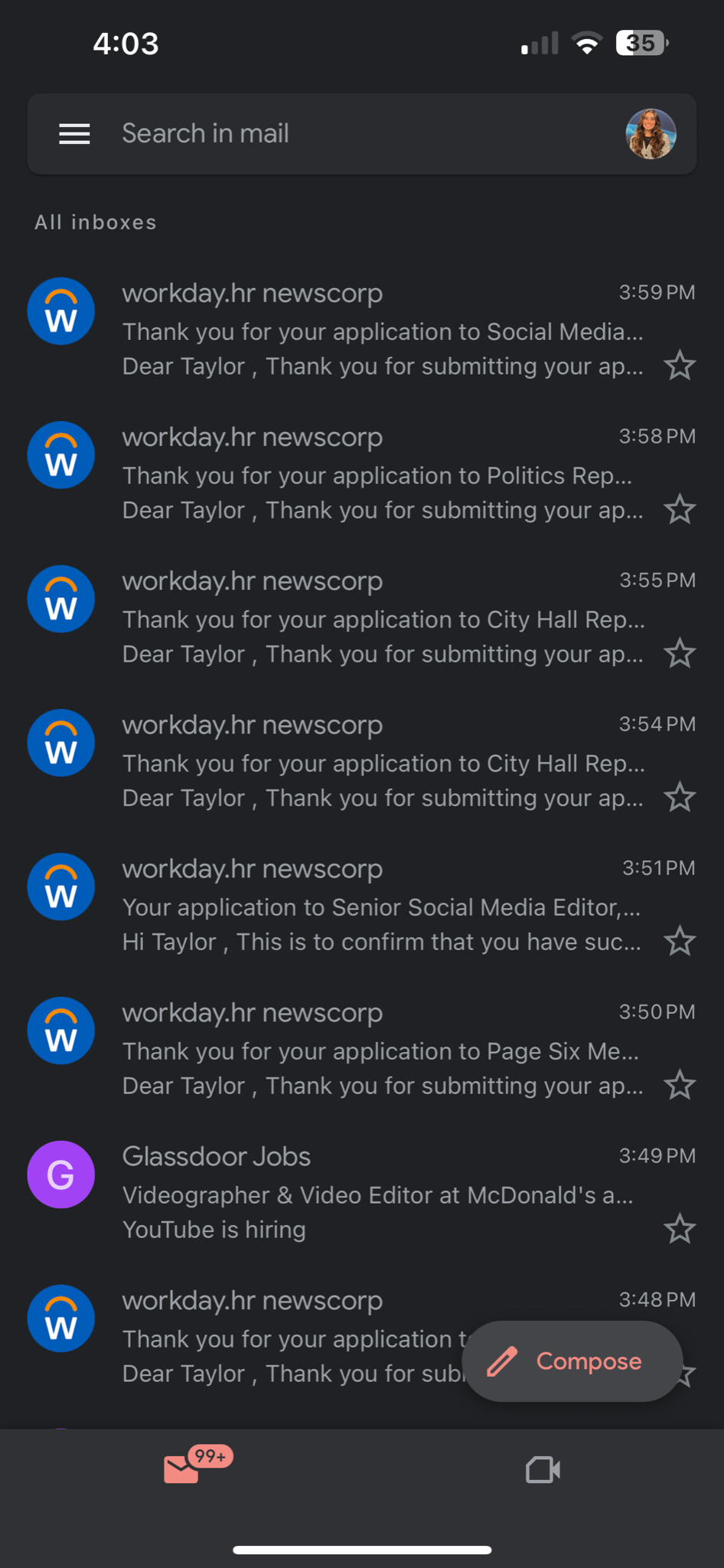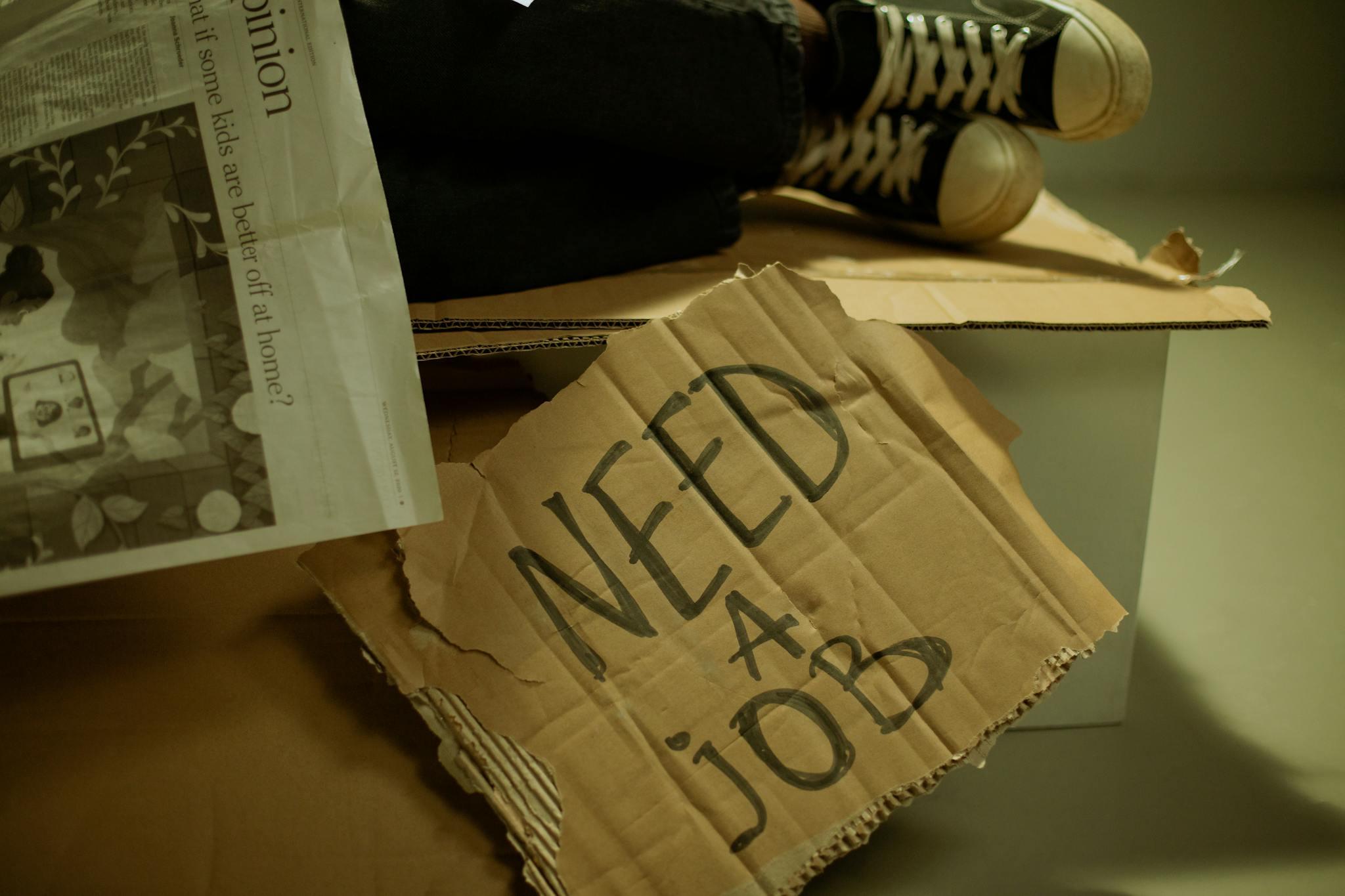The Harsh Reality of Job Hunting
Almost five years ago, I began pursuing my college degree. Bright-eyed and bushy-tailed, I was eager to begin the journey that would lead to me being a hardworking, career-driven young woman. I was ready to become a hard-hitting journalist and compelling anchorwoman.
Four years later, I walked across the stage to receive my degree in Broadcast Journalism from the University of La Verne, complete with a 4.0 GPA and Summa Cum Laude honors. I had spent countless hours in the day studying, editing packages, and writing news articles in between classes and my internship. By my senior year, my social life had dwindled down to just a handful of people, and most time spent with my longterm boyfriend consisted of either me editing my news packages for Foothill Community News or producing the script for the next show, all the while editing dozens of articles for the Campus Times Newspaper. But I knew the sacrifice would be worth it once I got my degree. And I did feel it was worth it on the day of my graduation.
“This was it,” I thought. “The end of my academic career, but the beginning of my professional one. I can’t wait.”
A little over a year later from my graduation date, here I am — still at my retail job with a degree in Journalism and now spending my hours submitting job application after job application, only to receive countless rejections a couple of weeks later. It’s an endless cycle, and that wide-eyed optimism I had felt my first day of college has long since faded away.

And I know I’m not the only one. A lot of college graduates are facing the same dead end in their job hunting. According to the Federal Reserve Bank of New York, the unemployment rate for recent college graduates has been as high as 5.8 percent this year, the highest since 2015.
The Business.com found even more startling key findings last month. The organization studied the journeys from application to submission from their class of 2022 interns. The shocking results from the research were as follows:
- Nearly 90 percent of more than 300 online applications submitted by recent graduates didn’t get any responses from employers (Felt that one). Often, the only reason graduates received a response was to be notified the position was filled.
- Only five percent were met with interest from employers. This percentage was the same amongst jobs that were explicitly labeled entry level positions, as well as cases where applicants met over 90 percent of the job qualifications.
- Only two percent of online applications resulted in interviews, but ultimately no job offer.
Those results were both comforting and terrifying for me. It’s comforting to know I’m not the only college graduate struggling to find a full-time job right now. But it’s also terrifying to know that we’re all in the same boat with seemingly no way out in sight.
Last year, my best friend was looking for a job to make some money before she began her clinicals in radiology. With over three years of management experience at a post office, as well as seven years in several customer service roles, she applied and was rejected at Raising Caine’s Chicken Fingers for a part-time position. She was more than qualified, but still turned away.
In my year of job hunting, I have interviewed for two positions. I interviewed for the first one in June. I was just excited to finally receive an offer after all this time. I received an interview invitation a day after applying. Once I completed a 30 minute phone call interview, which I know for a fact I nailed, I interviewed in-person a week later. I wanted that job so badly. I thought the interview went well, amazing even. I charmed them, shared my skillset and met with the other employees. It was a no-brainer that I was getting the job, right?
When I received the rejection email, I bawled like a baby. Silly of me, I know. But it felt like such a defeat. I wanted that job so badly, and I thought that all the hours spent editing my resume, typing up cover letters, submitting so many applications that I lost track, had finally paid off. Why would I meet the other employees if they weren’t going to hire me? I took it a lot more personally than I should have. After an hour of going through the motions, it was back to the drawing board.
The second position, I actually received a job offer, but everything in my gut told me it wasn’t the job for me. The description of the position was much different on paper than it was described to me during the interview. In fact, they told me they could send me in there right now and I would be able to do the job, I was that qualified. Great, right? Until they told me they were worried that I would get bored. That’s not exactly the thing you want to be hearing in an interview. There were other signs that were all pointing to ‘No.’ It felt so dejecting, turning away the first job offer I’ve received after all this time, but I knew I couldn’t take a job I would be settling for. Not after putting so much passion and effort into my degree.
Society tells you, “If you want a good paying job, you need to get your degree.” What society doesn’t tell you is, “Now that you have your degree, you need a minimum of two to five years of professional experience for this entry level position.” Where am I supposed to get those years of experience when I can’t even get hired for an entry level position?
College graduates with degrees in biology, engineering and more are in the exact same boat as someone with a communications degree. I’m constantly on the job-hunting side of Tik Tok listening to a recently graduated engineering student talk about how humiliating it is to be rejected at McDonald’s when they know how to design a literal machine. I’m baffled by that.
My sister-in-law is struggling so much to find a teaching job in California that she and her husband are now looking to move to Tennessee in hopes that teachers will be in demand there. But what about the teacher shortage here? How does that make sense? According to Proximity Learning, nearly 90 percent of schools say they have trouble filling vacant teaching positions, over 50 percent struggle to find substitute teachers and 70 percent of educators report their school being understaffed. So by my logic, teachers need to get hired. So how are so many people with teaching credentials struggling to find employment?
According to outplacement firm Challenger, Gray & Christmas, 2025 has seen the largest number of layoffs since 2020. Combined with the high rate of college graduates struggling to find jobs, you have one of the worst job markets the world has seen.
I’m trying not to lose hope. I set aside at least two, sometimes three, full hours a day to fill out job applications in between my retail job and other life commitments. I have turned on email notifications for job opportunities across Indeed, Glassdoor and LinkedIn. As of Oct. 2nd, I’ve applied for over 80 positions in the past month alone, and have already received several rejections, while my other applications are still pending. I’m telling myself 2025 will be the year
I will start my full-time career as an aspiring multimedia journalist. While doing freelance work is still rewarding, it would be even better to know I was receiving an income after putting so much time and dedication into it.
Until then, this is Taylor Moore, your broke and freelance journalist reporting from the despair of her bed in the late evening.
Taylor Moore can be reached at @bytaylormoore@gmail.com.

0 Comments Add a Comment?